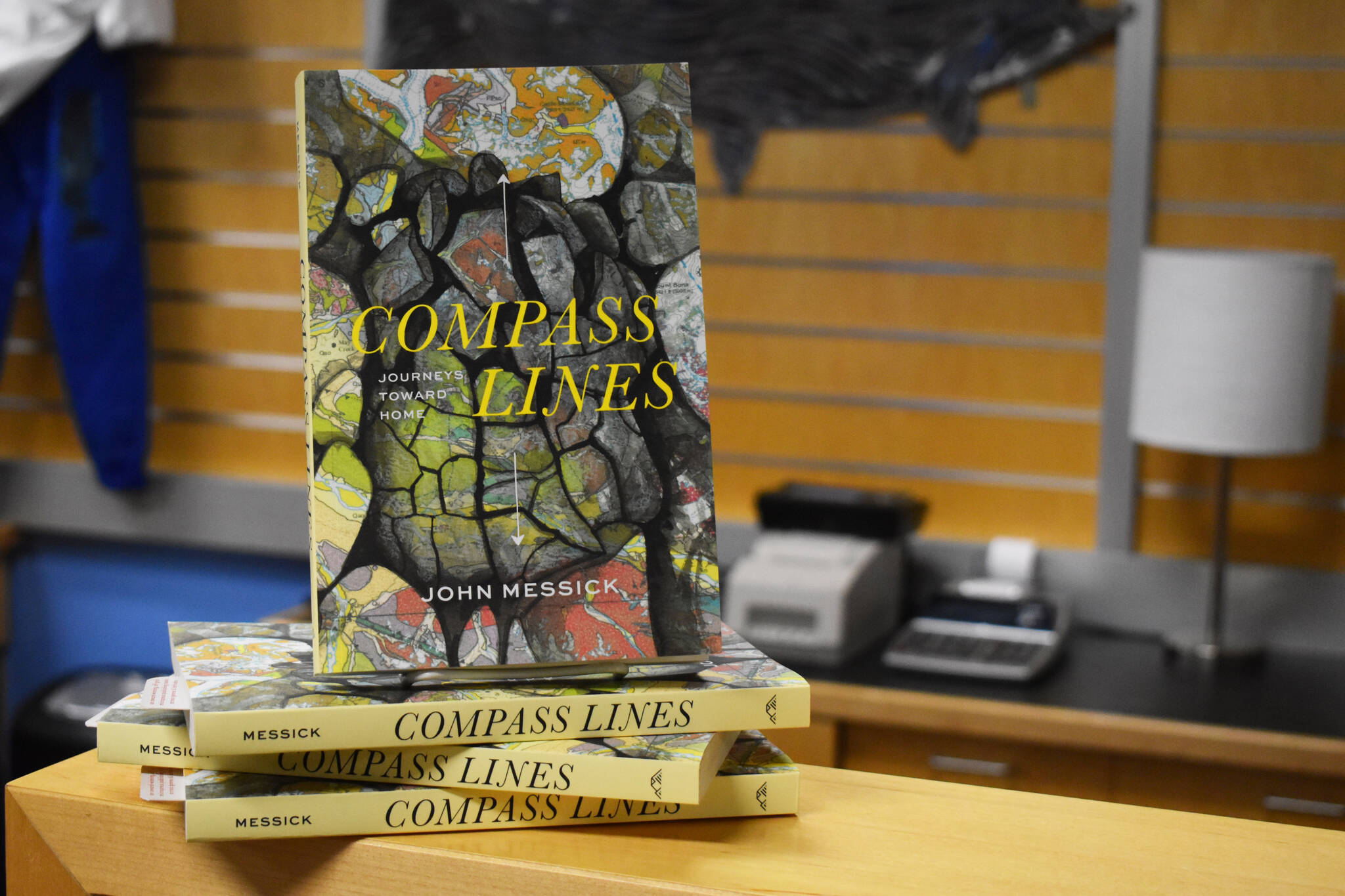I’ve had a copy of “Compass Lines” sitting on my shelf for over a year. When I first picked it up, I wasn’t in the right place to engage with it. Recently, grappling with some of my own questions about belonging and purpose, it seemed the right time to revisit it — and I found a lot to connect with in the quiet, thoughtful essays that fill its pages.
“Compass Lines” is a collection of stories, written by Messick, about travels undertaken across a broad swath of his life.
In each, he grapples with questions about place, presence and residence as he adventures in Alaska, Syria, America’s southern border and others. In each of these places, in each of these essays, he describes lessons learned and connections made — in many, the takeaway seems to be that he is encroaching on places and cultures beyond his understanding.
The stories each are varied; Messick describes summer jobs, cycling, canoeing and hunting in ways that could easily have been read as exciting tales of adventures past. Instead, in each the tone feels much quieter and more contemplative. He tells each story with vulnerability as he interrogates his own mistakes and exploitations.
Rather than tell an adrenaline-fueled story about time spent fighting forest fires, he interrogates his place and his connections with the other people around him — “in truth, work on fire is often tedious.”
The text reads in many ways as a confession — one undertaken in a compelling, earnest desire to find a greater understanding of the world, and a more intentional and ethical presence in it.
Though Messick’s stories are scattered through time and location, there are throughlines of his thought, of that relationship with the wilderness, and of his relationships with other people that are developed throughout, drawing the reader along as the ideas in the text lead to its heavier conclusions.
Many of the stories in the book take place in Alaska, where Messick describes struggles to contend with the influence of non-indigenous cultures. He remarks that even after a decade living in Alaska, he’s still not comfortable calling it home — “connected to a place where I didn’t quite belong.”
Belonging is a subject I’ve been grappling with in ways that don’t necessarily match the ones that Messick tackles in “Compass Lines,” but his reflections consistently leave me thinking, even if, as he promised when we spoke a year ago, the book doesn’t necessarily offer easy answers to its questions.
“Compass Lines” was published in 2023 by Alaska-based Porhyry Press.
Reach reporter Jake Dye at jacob.dye@peninsulaclarion.com.


